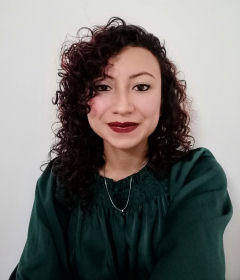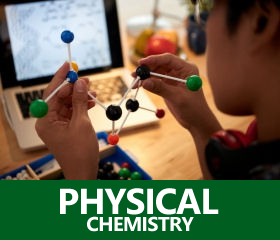 Researcher
Researcher
Scientific Area: Physical Chemistry
Dipartimento di Chimica e Chimica Industriale
Via Moruzzi 13, 56124 PISA
Office Phone: +39 050 2219 268
Lab. Phone:
E-Mail: Questo indirizzo email è protetto dagli spambots. È necessario abilitare JavaScript per vederlo.
Personal Web Page: molecolab.dcci.unipi.it/people/pedraza-gonzalez.html
Group Web Page: molecolab.dcci.unipi.it
Link to publication: arpi.unipi.it/cris/rp/rp183326?start=0&sortBy=-1&order=ASC&type=all&rpp=2
UniMap: unimap.unipi.it/cercapersone/dettaglio.php?ri=172062
Google scholar: scholar.google.com/citations?user=VrCvZn8AAAAJ&hl=es&oi=ao
ORCID: orcid.org/0000-0002-9806-236X
Short academic CV and research topics:
Laura got her Bachelor's degree in Chemistry (5-year program) in 2014 and a Master of Science in Theoretical and Computational Chemistry (2.5-year program) in 2017, both from the Universidad Nacional de Colombia (UNAL). Her master thesis was carried out in the Quantum and Computational Chemistry <Q|C|C> group, led by Prof. Andrés Reyes, where she also worked as a Research Assistant. Her research in the <Q|C|C> was mainly focused on the application of ad hoc methods beyond the Born-Oppenheimer Approximation for analyzing the binding of protons and positrons to molecules. As a main result, she contributed to pioneering studies reporting the theoretical elucidation of a new type of chemical bond, i.e., the covalent positron bond in dihalides and the three-center two-positron bond.
She pursued her PhD in Chemistry in the Laboratory for Computational Photochemistry and Photobiology (LCPP), under the supervision of Prof. Massimo Olivucci and Prof. Luca De Vico, at the University of Siena. After her PhD thesis defense in April 2021, she continued her research activity in LCPP as a Postdoctoral Researcher. Her main scientific contribution during her research experience in the LCPP, consisted in the blueprinting, implementation and application of fully automatic protocols for the computational modeling of the ground and photoexcited states of rhodopsin variants, useful as optogenetic tools.
In 2021 she joined the Molecolab group at the University of Pisa, led by Prof. Benedetta Mennucci, first as a Postdoctoral Researcher (2021-2023) and currently as an Assistant Professor (RTD-A). Her current research is focused on the development and application of multiscale computational protocols for building models that aim to clarify the molecular details of the mechanisms of both light harvesting and non-photochemical quenching processes in the main antenna systems (Light Harvesting Complex -LHCs), coming from plants, algae and mosses.
She has authored or co-authored more than 20 scientific papers.
CV: https://drive.google.com/file/d/1G-HHh9dly8LpUkR-pV0fmrqlExsj_GTg/view






